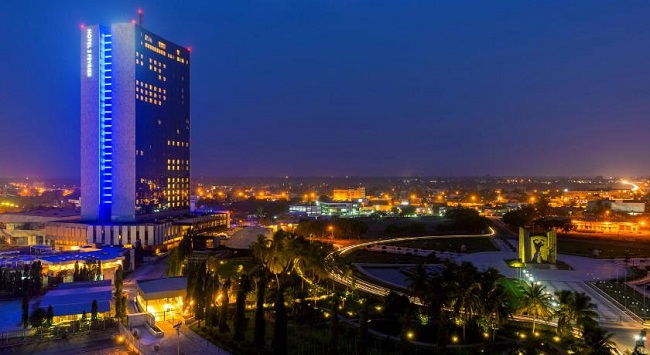Mayors have pledged to integrate environmental and climate goals in the development plans of local authorities and in post-COVID economic recovery plans in order to make societies and economies more resilient to foreseeable future shocks.

This formed part of the resolutions contained in the “Lome Declaration”, which emerged at the close of the Regional Forum that held from June 10 to 11, 2021 at the instance of the United Cities and Local Governments of Africa (UCLG Africa).
The forum, held in Lome, Togo, was themed: “Strengthening the Resilience and Increasing Climate Ambitions of Local Governments in Africa”.
Participants at the forum, representing the Member States of the West African Economic and Monetary Union (WAEMU), underlined the urgency and the need to increase the ambition of the Paris Agreement in order to limit the increase in global warming to 1.5 degrees Celsius by the end of the 21st century compared to the pre-industrial era.
“We’re convinced of the importance of examining the conditions to be fulfilled in order to promote the amplification of climate investment within the local and regional governments of the WAEMU area and of structuring the cooperation between the local authorities within the framework of the implementation of the Nationally Determined Contributions for the achievement of the Paris Agreement,” participants declared, stressing that the issues of mitigation and adaptation must be jointly addressed by the national and territorial levels in order to ensure the coherence and continuity of climate action at the different levels of governance.
According to them, the COVID-19 pandemic has led to a reduction in the budgets of local authorities in the WAEMU area of around 30 to 50% which, they claimed, has the consequence of further limiting the action capacities of said local authorities in the face of vulnerabilities linked to climatic threats and obstacles to improving the environment and living conditions of the populations.
They further stressed that the work of the Lomé Forum is intended to be a contribution by local authorities in the WAEMU space to the main events on the climate agenda, namely the Africa Climate Week scheduled for August 2021 in Kampala, Uganda; the Climate Chance conference scheduled for September 2021 in Dakar, Senegal; and the Conference of the Parties to the United Nations Framework Convention on Climate Change scheduled for Glasgow, Scotland, UK, in November 2021 (COP26).
The forum stressed that climate action brings a fresh perspective to the design of the group’s development and poverty reduction models, which involves aligning all planning and budgeting instruments and procedures at all levels of governance, and in particular at the level of cities and territories.
Participants called on local authorities in the WAEMU area to adhere to the Covenant of Mayors for Climate and Energy in Sub-Saharan Africa (CoM SSA) so that they can benefit from the support put in place within the framework for the development of climate-energy plans for their territories.
They subscribed to the establishment of a regional Readiness programme targeting local and regional governments of the countries of the WAEMU space with a view to mobilising climate finance and contributing to the transition towards inclusive, sustainable, and resilient territorial development.
They further declared: “We welcome the commitment of WAEMU, UCLG Africa, BOAD, EBID, and of the Green Climate Fund focal points of WAEMU Member States, to support the implementation of the regional Readiness program. intended to support local authorities in the WAEMU area for the definition of portfolios of projects eligible for climate finance. In this regard, we call on these actors to work to make Lomé the hub of climate finance in West Africa.
“We ask, within the framework of the planned Readiness Program, and with the support of the Climate Task Force of UCLG Africa in collaboration with WAEMU, for a capacity building mechanism and a technical assistance tool be set up for the benefit of associations of local authorities in the WAEMU area, including through the establishment of climate focal points within said associations, the development of awareness and training guides, and the provision of consultants for technical support to be provided for the structuring of climate-energy projects integrated into the territorial development plans.
“We invite the local and regional governments of the WAEMU space to adopt a multi-stakeholder approach in the definition and implementation of climate action at the territorial level, and to work with the private sector, the research community, and civil society to explore innovative solutions and participate in the collection of the data necessary to ensure the monitoring, reporting and verification of the implementation of the climate agenda within our territories.”
